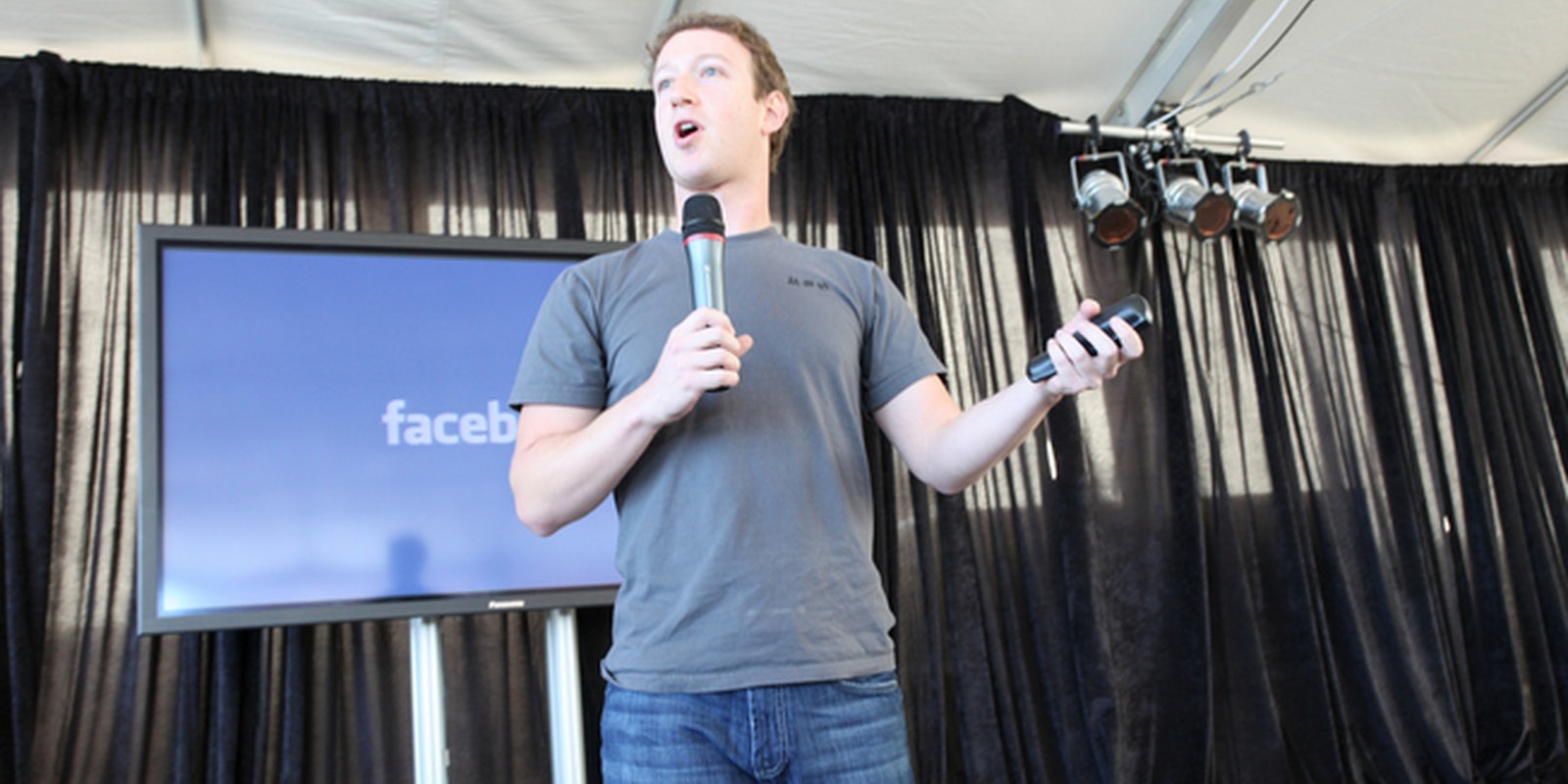Another day, another new detail about Facebook’s controversial “emotional contagion” study that’s sure to further upset many of the site’s visitors.
We’ve already told you how angry users were to find that nearly 700,000 of them were unwittingly part of an experiment in which researchers tampered with their News Feeds to either highlight overly negative or positive stories, testing the hypothesis that emotions can be contagious on the social network. Then we found out that Facebook’s primary defense for its actions—a boilerplate line in its terms of service agreement about utilizing user data for research—wasn’t even added until four months after the experiment had been completed.
Now comes a report suggesting that Facebook’s research may have been tied to the Defense Department, as part of the Pentagon’s ongoing efforts to research “civil unrest.”
According to SCGNews, in the official credits of the emotional contagion study is one Jeffrey T. Hancock of Cornell University. Hancock, it turns out, is also listed on the website for the DoD’s Minerva Research Initiative, which is focused on gathering data about mass, worldwide civil unrest factors and conditions.
The Minerva project was launched by the Defense Department in 2008 in partnership with a number of universities and research institutions. Minerva is designed “to improve DoD’s basic understanding of the social, cultural, behavioral, and political forces that shape regions of the world of strategic importance to the U.S.”
Hancock has previously worked on DoD funded projects like “Modeling Discourse and Social Dynamics in Authoritarian Regimes,” and Cornell is currently receiving funding for another DoD research project: “Tracking Critical-Mass Outbreaks in Social Contagions.”
Though the Defense Department funding research is hardly unusual, that fact that it’s now connected to such a controversial experiment by Facebook is likely to further irk users. After all, this news comes little more than a year after revelations about the National Security Agency PRISM program in which Facebook willingly participated, letting the NSA gather user information.
Many Facebook users are upset that the social network apparently ignored standard ethical protocol and failed to give users any sort of advance notice or opt-out before the experiment took place. Facebook insisted that its terms of service allow it to utilize user data for research purposes, however that provision was only added months after the experiment had taken place. And even if that clause had existed in the terms of service beforehand, many experts say it would not have made a difference, since Facebook was directly manipulating its users, not merely examining their data.
Adam Kramer, one of the lead researchers on the project, issued a statement on the project earlier this week suggesting that, “The reason we did this research is because we care about the emotional impact of Facebook and the people that use our product.”
But this newfound connection to the DoD suggest that the research could have more nefarious intent. Research in this field seems directly tied to such government projects as the botched Cuban Twitter scandal. Earlier this year, the State Department was caught trying to sow the seeds of discontent in Cuba with a social media platform run by the U.S. government. And now many users will (not unreasonably) suspect that the emotional contagion study could be used as part of additional U.S. efforts to propagandize or militarize social networks in the future.
Photo by Robert Scoble/Flickr (CC BY 2.0)


